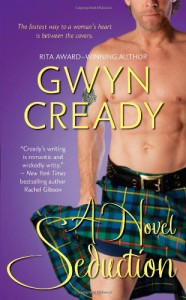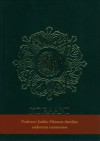rameau's ramblings
A reader who’ll try anything once, including bad books in search of good ones. Eclectic as her tastes are, she tends to gravitate to historical romances, realistic contemporaries, and some fantasy novels.
A Novel Seduction by Gwyn Cready

A this point I ask myself why did I wanted to buy this book in the first place. Why didn’t I take the first geolock warning as a sign and just forget it? Why did I go through the trouble of getting another online ebook shop account to spend money on this?
Oh, right. It was the cover.
The premise helped too. A literary snob who learns to appreciate romance novels. In a romance novel. You have to appreciate the poetic justice there. And on a theoretical level this story works. Cready builds a love story between two people who have history together and shows how they’ve learned from their mistakes and grown up. In practice however it all falls apart. Cready tries to do much.
To successfully show how much Axel has grown over the years he and Ellery have spent apart, Cready throws in a handful of flashback chapters to illustrate exactly how things went wrong the first time around. She shows Ellery and Axel in love but not quite ready for a mature relationship. Although I’d rather have had all those past indiscretions come about through dialogue between the couple, it works. Both Axel and Ellery become fuller characters through those scenes. Had this just been a story about two old lovers reconnecting, Cready would have had a winner in her hands.
Unfortunately, Ellery’s journey to journalistic enlightenment comes through three specific romance novels of which two play a significant part in the story. Instead of writing two stories within one, the author is juggling four. None of the plot threads feel complete by the end of the book. The paranormal romance within a romance kickstarts the plot but is soon forgotten in the pits of a bra pyre and the historical homage to Outlander—though Cready calls it Kiltlander—threatens to overtake the frame plot. I admit that overtime I’ve become biased against Gabaldon’s series but I maintain that Cready would have been wiser to invent a romance to connect all the romance readers around the globe.
On top of all this, the story relies heavily on one of my least favourite romance tropes: Miscommunication. Ellery never told Alex why she wanted to break up all those years ago and he never told her he knew anyway. She’s not telling him about her new job offer and he’s not telling her about his upcoming career change or the espionage it’s forcing him to do. Eventually, they do talk about these things but then it feels rushed and uneven. I am convinced that Axel has changed, that he is ready for a serious relationship, and maybe event that he’s earned a second chance with Ellery. However, I’m not convinced she’s earned his trust and a second chance to have a family with him.
On top of these big picture problems there were the smaller failings too. There were the unfortunate euphemisms and expressions as well as the slightly off emphasis on tone. Cready missed a perfect opportunity to turn the sexism from the beginning of the book on its head when none of the molested, kilt-clad men thought to ask if that’s what women go through every day. No one thought it’s wrong and shouldn’t happen.
Yet, I didn’t hate the book. How could I when a (German) character, confronted with the idea that love and a happy ending make a romance novel somehow a lesser form of literature, said:
“‘—in vhich case you’d have to eliminate Chaucer, Jane Austen, Dorothy Sayers, and half of Charles Dickens as vell.’ ‘But wait,’ Ellery said thrown for a loop, ‘what about the sex?’ ‘You’re right. Toss out Shakespeare, Toni Morrison and Philip Roth too.’”




